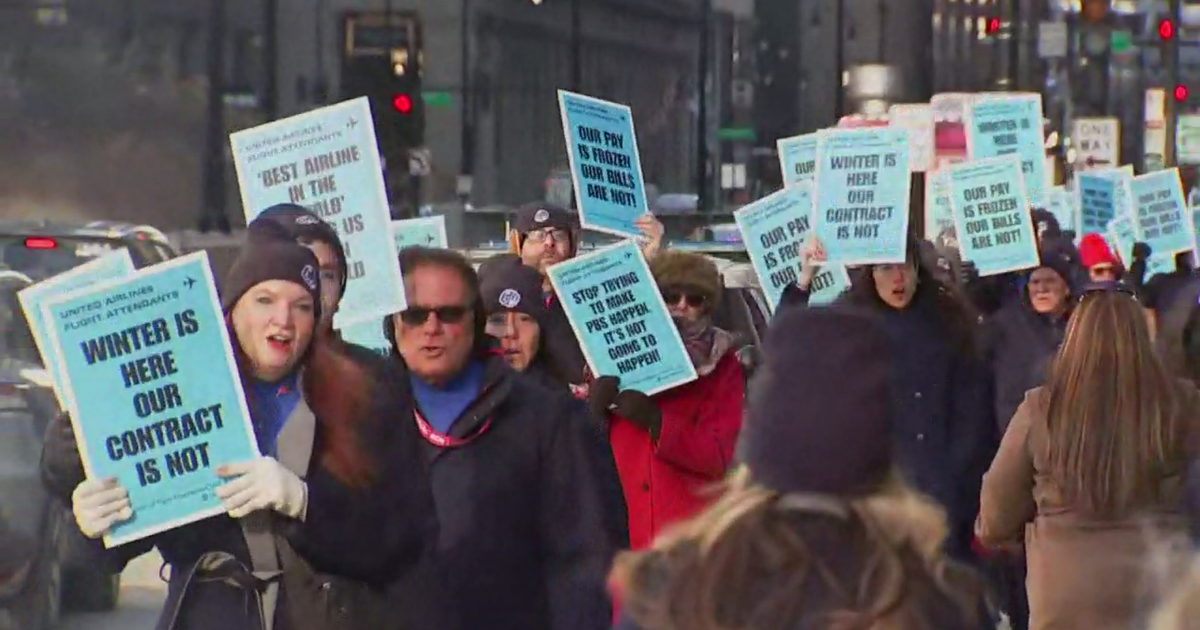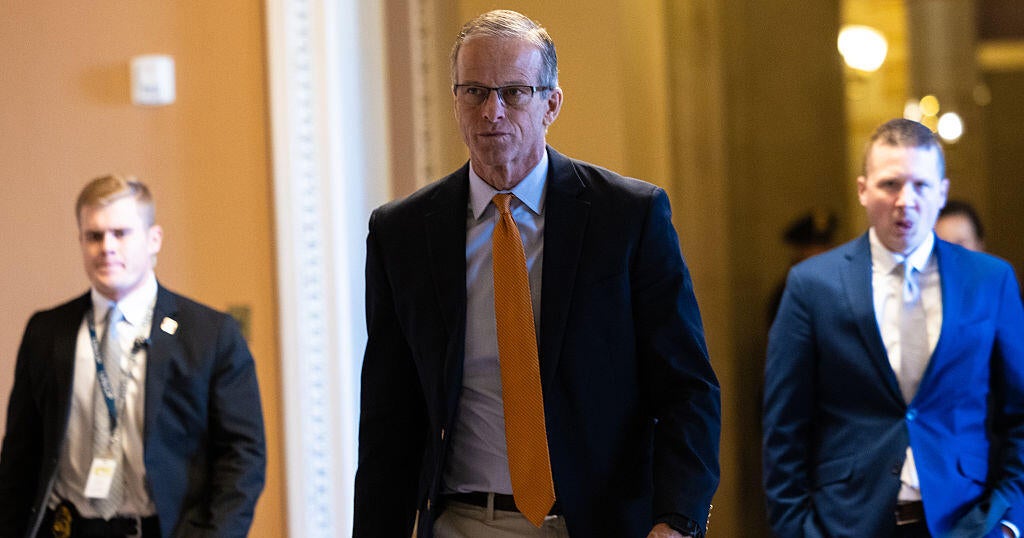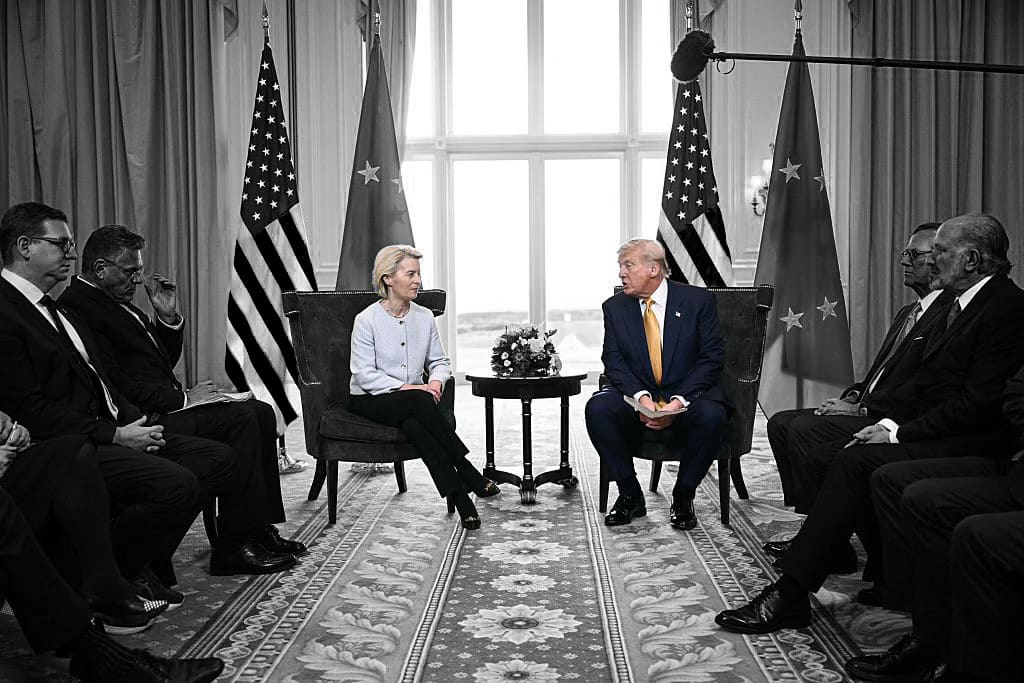Brexit news: The fast-changing facts and what you need to know
London -- As Britain approaches the date it is supposed to exit the European Union, the Brexit process is only getting more chaotic. The chance of the U.K. crashing out of the union it helped to create without any agreement in place on future relations is more likely than ever.
With daily headlines about cabinet resignations, cross-party negotiations, deadline extensions and even a "flextension," what are the facts?
Is there a hard deadline for Brexit?
Fact: Currently, the cliff edge is April 12. Source: European Union. But the U.K. has asked for an extension.
Initially, the deadline for Britain to leave the European Union was March 29, 2019, but the EU granted the U.K. an extension. The bloc agreed to a delay, but demanded that lawmakers in London use the extra time to pass at least one key piece of Brexit legislation -- the Withdrawal Agreement -- by March 29. They failed to do that.
The EU then let the deadline for the U.K. to pass a withdrawal agreement slide to April 12.
On April 5, British Prime Minister Theresa May formally asked the European Union to delay Brexit until June 30, hoping to avoid a potentially damaging "no-deal" crash-out of the union on April 12.
Tusk made a counteroffer, proposing a longer, indefinite time frame. He urged 27 other EU states to offer the U.K. "flextension" -- a delay of up to a year. EU officials said Tusk was to try and get his concept approved at an EU summit scheduled for mid April.
Both the U.K. and the EU have been trying to avoid Britain participating in upcoming European parliamentary elections, scheduled for May 23-26. But if Britain is still technically a member of the union at that point, it will have to field candidates under EU law.
May has said she "accepts" that legal requirement, and her letter to Tusk requesting the end-of-June delay noted that her government was preparing contingency plans to field candidates.
What's wrong with the deal May reached with the EU?
Fact: Approximately 3,500 people were killed in "The Troubles," a decades-long violent conflict in Northern Island that ended in the 1990s. The end of that conflict opened up the border between Ireland and Northern Ireland. Source: Malcolm Sutton's Index of Deaths from the Conflict in Ireland, Ulster University
The conflict that ended in the 1990s with the "Good Friday Agreement" has been one of the biggest thorns in the side of the British government's withdrawal deal.
Theresa May's deal would put an end to free trade and free movement between Britain and EU countries. Northern Ireland (part of the U.K.) and the Republic of Ireland (an independent country and EU member) share a land border. That border has remained open as part of the peace agreement which put an end to decades of conflict. Ending free movement and trade between Britain and the EU would require some level of new border controls on that Irish border, and many fear that could stoke sectarian tensions still simmering beneath the surface, and jeopardize the hard-won peace.
May's way around this problem in her draft deal with the EU is the so-called "backstop," which states that the U.K. would effectively remain within the customs union with the EU until a solution for the Irish border can be negotiated and put in place. Critics point out, however, that that could be never.
It was this "backstop" clause, and the possibility that it could keep Britain bound to EU customs rules indefinitely after Brexit, that made May's deal a no-go for many hardline "Brexiteers" in her party.
What about EU citizens living in the U.K.?
Fact: There are approximately 3.7 million EU citizens living in the United Kingdom. An estimated 1.3 British-born people lived in other EU countries in 2017. Source: UK Office for National Statistics and the United Nations.
May's withdrawal agreement set out a plan for how to deal with the millions of EU citizens living in the U.K., many of whom have resided here for decades and never had to think about their immigration status. Under her plan, EU citizens living in Britain would have to apply for "Settled Status," which would protect some of their rights -- primarily their rights to live and work in the U.K. Thousands have already applied.
If the U.K. crashes out of the EU without a deal, the British government has said that Settled Status will still apply, though parts of the timetable will vary, including the period during which applications can be made. On Wednesday, the EU said British citizens would still be able to travel to and within the EU without a visa for up to 90 days, even if the U.K. crashes out with no deal.
Rights groups have voiced concerns about whether EU citizens from vulnerable groups living in Britain, including the elderly and children in state care, will have the necessary support to apply for Settled Status. The process can be done either online or via a smart phone app.
Could there be another U.K. referendum?
Fact: The opposition Labour Party's position is that it will back a second referendum, but only under certain circumstances. Source: BBC News
According to the BBC, opposition leader Jeremy Corbyn has told members of his party that he would consider another public vote to prevent a "damaging Tory Brexit," or a no-deal Brexit.
May has been unable to get her draft deal passed by the House of Commons, where her own Conservative Party and its allies hold a majority, so she has reached out to Labour and Corbyn to try to cobble together enough votes across the aisle to get it approved.
Corbyn may not ask for another referendum if he and May are able to reach a compromise deal. That would anger some members of his party, who want any agreement to be put to a public, confirmatory vote. It would also infuriate the hardcore pro-Brexit lawmakers in May's party, who would see any further compromise in favor of closer future ties with Europe as a betrayal of the 2016 referendum result calling for Brexit in the first place.
Corbyn said the first day of negotiations on Wednesday was "useful but inconclusive." Talks were expected to continue on Thursday.
Will Brexit hurt the U.S. economy?
Fact: The United Kingdom is the U.S.'s top foreign investor. Source: CBS MoneyWatch
The United Kingdom is the U.S.'s biggest foreign direct investor, and experts predict that its economy will take a hit if there is a no-deal Brexit. Last week, the U.S. Chamber of Commerce issued a statement urging the British government to come up with a solution to avoid crashing out of the EU.
"We urge MPs to find consensus immediately on a way forward that avoids what surely would be a disastrous development for consumers, workers and businesses alike," the statement said.
A no-deal Brexit could disrupt global financial markets and be a "system risk" to American banks, according to the Financial Stability Oversight Council.
What happens if there is a no-deal Brexit?
Fact: If Britain crashes out of the EU without a deal, there will be no transition period. Source: Full Fact
Under Theresa May's proposed deal, the U.K. would leave the EU and then have an extended transition period to negotiate its future relationship with the bloc. Without a deal, at midnight on April 12, Britain would simply cease to be a member of the European Union, facing new tariffs and border controls.
Goods which had moved freely between EU countries for decades would likely be suddenly subjected to much higher tariffs. Economists have warned that Britain's residents could see price increases as well as shortages of food and medicine, and there could be major delays at ports as new customs regulations are put in place.
While the government and the EU have been quietly planning for this contingency for months, even years, the truth is it remains unclear exactly how an unprecedented exit by an EU member state -- with, but especially without a deal -- could effect everyday life.





